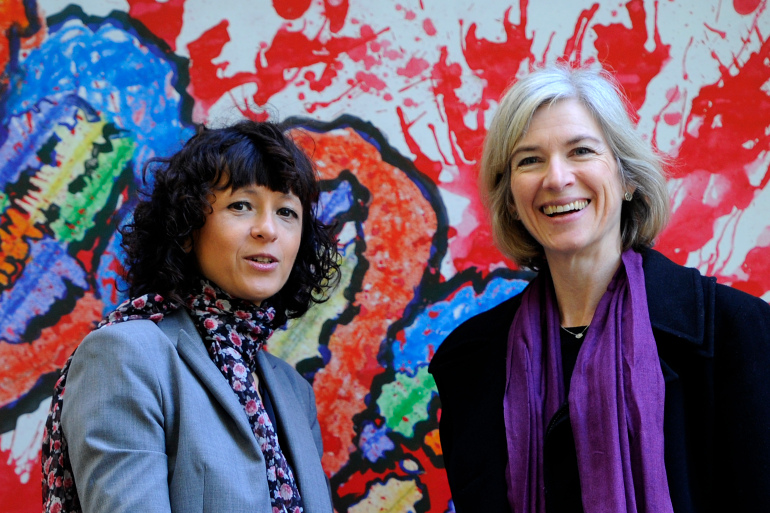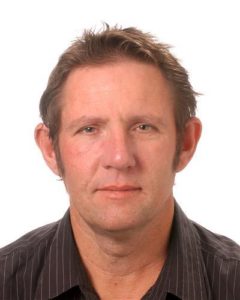The Royal Swedish Academy of Sciences last week awarded the 2020 Nobel Prize in Chemistry to Emmanuelle Charpentier and Jennifer Doudna for their work on CRISPR, a method of genome editing.
CRISPR technology has been described as a powerhouse for basic research which is changing the world we live in. Thousands of research papers are published every year based on its various applications. These include accelerating research into cancers, mental illness, potential animal to human organ transplants, better food production, eliminating malaria-carrying mosquitoes and saving animals from disease.
In China, a company called EdiGene has raised around $67 million to advance work on gene-editing therapies.
In the US, biotech companies has been booming in the past decade, with areas like gene editing stealing the show as they increase scope for treating life-threatening diseases.
In the UK, the British Society of Plant Breeders expects the development of gene editing will be facilitated by Brexit, freeing the country from EU regulation at the end of the year. This is expected to provide a big boost to researchers and farmers.
The UK is now bound by the European Court of Justice, which has ruled that gene editing – for example, taking a gene from one strain of wheat and putting it into another strain of wheat – should be treated the same as GM.
Legal constraints on GM research and application are among the big issues in this country.
The New Zealand Institute of Agricultural & Horticultural Science will be conducting a Gene Editing Forum at Lincoln University on October 21. The topic has been chosen because the report from the Royal Society Expert Panel on Gene Editing recommended there is an “urgent need for wide and well-informed discussion and debate about gene editing”.
Since the release of the society’s report, the issue seems to have gone quiet and there appears to be little indication of where we might go from here. The forum will be looking for the next step – how do we start to think about the use of this technology in the future? It will cover how and why gene editing technology could be used in plants, animals and pests.
For the first time, the Institute will live-stream the Canterbury Forum for people who do not wish to travel. You can register through the AgScience website.
https://agscience.org.nz/canterbury-forum-2020-gene-editing/
Here are the topics:
Gene Editing Programme
Wednesday 21st October 2020 – 9.00am to 3.30pm
Stewart 1, Stewart Lecture Theatre, Lincoln University, Lincoln
Dr David Penman, Honorary Academic, School of Biological Sciences, University of Auckland
Topic: Since the RSNZ Report – where we might go from here and how
Two decades after the Royal Commission on Genetic Modification published the report which shaped New Zealand’s laws on genetic engineering, the Panel established by the Royal Society Te Aparangi to examine biotechnologies soon noted that the rapid development of gene editing as a key technology had the potential to impact across all sectors of society. Dr Penman will summarise the role of the Panel and its approach and discuss what it learned, especially from engaging with Māori, a critical issue given the rising significance of Treaty settlements investing in agriculture and horticulture.
 Professor Emerita Paula Jameson
Professor Emerita Paula Jameson
Topic: Before and after genetic engineering – perspectives from a plant biologist
Professor Jameson will comment on various forms of genetic modification used in plant breeding – from those first introduced 80-years ago to the present day – placing issues associated with genetic engineering and gene editing in the context of widely accepted practices.
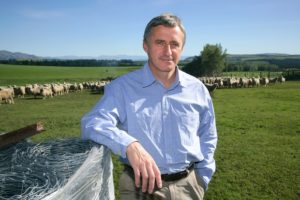 Dr William Rolleston, Chair, Life Sciences Network
Dr William Rolleston, Chair, Life Sciences Network
Topic: Can we pull gene editing from the GM quagmire? – Regulation and public debate
Four local authorities have prohibited the use of genetic modification in agriculture and the environment and successive governments remain paralysed on the issue. But the compelling promise of gene editing to help address the challenges of climate change, saving native birds, pest control and reducing agriculture’s environmental impact while revolutionising food production means we can no longer stand back and watch the world go by.
Dr Andrea Byrom, Co-Director BioHeritage National Science Challenge
Topic: Ensuring a Treaty-based approach to investing in gene editing for pest control in Aotearoa
Dr Byrom will present an overview of research investments in the Biological Heritage National Science Challenge that are related to gene editing for pest control. These investments need to consider not only the technologies, but also the relevant social, ethical and cultural research, and this session will include the approaches taken to include Māori researchers and communities in leading this research in the Challenge.
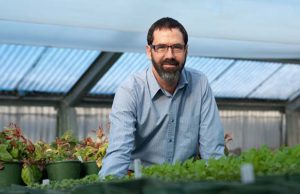 Professor Travis Glare, Director, Bio-Protection Research Centre
Professor Travis Glare, Director, Bio-Protection Research Centre
Topic: Modifying microbes to increase efficacy.
Professor Glare will explore some of the approaches taken in microbiology, such as the expression of exotic genes and targeted mutations, to improve particular microbial characteristics beneficial for agricultural use. Very few such modified organisms have been used in commercial or open field situations and the community and industry acceptance of these technological innovations is still lacking. Recognising what is possible, and the limitations and risks, is necessary for any meaningful debate.
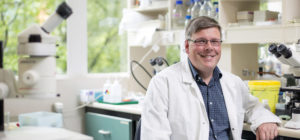 Professor Peter Dearden, Researcher, University of Otago
Professor Peter Dearden, Researcher, University of Otago
Topic: Gene editing to control insect species
Professor Dearden will discuss gene editing in pest control, gene drives and how they might work, and how we need such tools to manage a rapidly changing biological environment and economy.
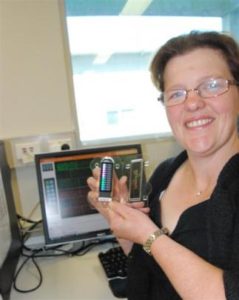 Dr Suzanne Rowe, Senior Scientist, AgResearch
Dr Suzanne Rowe, Senior Scientist, AgResearch
Topic: Breeding ruminant livestock for lowered environmental impact
Dr Rowe, a quantitative geneticist at AgResearch working on livestock breeding for health and performance traits, will discuss progress in a livestock breeding programme for lowered environmental impact using the genetic and genomic tools currently available.
Professor Andrew Allan, Plant & Food Research and the University of Auckland
Topic: New breeding technologies for fruit trees
New Breeding Technologies (NBTs) have produced apple and kiwifruit plants for accelerated gene-function testing, breeding, indoor farming and cultivation as an annual crop. Using these plants, crossing has begun targeting better storage, and higher levels of anthocyanins and carotenoids for future cultivars. Because of competing markets, New Zealand must consider whether these new breeding technologies should play a part in our response to changing markets and to changing climate.
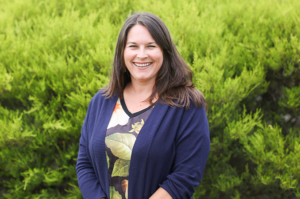 Dr Linda Johnson, Senior Scientist, AgResearch
Dr Linda Johnson, Senior Scientist, AgResearch
Topic: Gene editing of secondary metabolite pathways in Epichloë endophytes
Dr Johnson will talk about the MBIE-partnership programme she is leading (“Improving resource use efficiency and the environment by gene editing Epichloë endophytes”) and CRISPR-Cas’s potential to rapidly advance Epichloë endophyte research, providing new genetic variation to deliver endophytes for forage grasses with a wider pest protection range and no animal health and welfare issues. Progress on developing CRISPR-Cas9 to modify Epichloë endophytes for perennial ryegrass will be presented.
Dr Colin Eady, Science Manager, Barenbrug New Zealand
Topic: The future of gene editing in seeds
Dr Eady will talk about the journey taken to get where we are today, the hypocrisy of the situation we are in, and the pragmatic approach the seed industry has to take.
Dr Tony Conner, AgResearch
Topic: Overview of where we have been and where we are going?
Panel Discussion
Chair: Dr Tony Conner
Prof Jon Hickford
NZIAHS President

